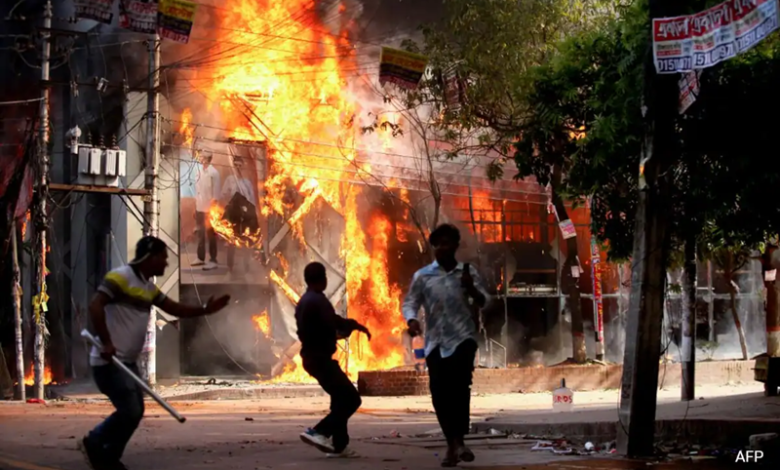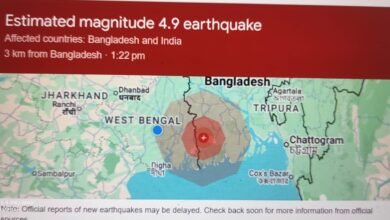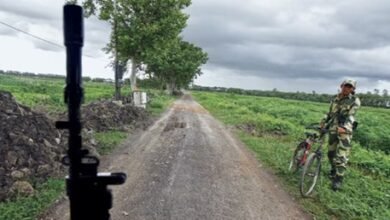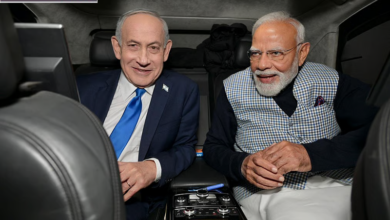Rising Concerns Over Influx in Northeast India Amid Bangladesh’s Political Turmoil

News Mania Desk/Agnibeena Ghosh/6th August 2024
The recent political turmoil in Bangladesh and the sudden departure of Prime Minister Sheikh Hasina from Dhaka have alarmed New Delhi, heightening concerns about a potential increase in cross-border influx into India’s northeastern states. This issue, already a significant concern in the region, has now become a priority in security discussions.
The porous border between India and Bangladesh, spanning 4,096 kilometers and touching West Bengal and several northeastern states, is a critical point of vulnerability. Student organizations, including the All Assam Students Union and the Khasi Students Union, have raised alarms about the possibility of increased illegal crossings.
In response to the escalating situation in Bangladesh, the Tipra Motha, part of the BJP-led government in Tripura, has called on Union Home Minister Amit Shah to implement measures to prevent infiltration. The Assam Pradesh Congress Committee president Bhupen Kumar Borah has also emphasized the need for heightened vigilance along the Bangladesh border to prevent illegal entries, particularly those of fundamentalist and extremist elements.
The Indo-Bangla border’s extensive stretch includes 2,217 kilometers along West Bengal and 318 kilometers along Mizoram. Given the situation, Meghalaya has imposed a night curfew along its border with Bangladesh, while Assam has issued a high alert in its border areas.
The potential fall of the Hasina regime presents another significant challenge for India. Historically, many northeastern insurgent groups have used Bangladesh as a safe haven for anti-India activities. Since coming to power in 1996, Sheikh Hasina has taken a firm stance against these groups, curbing their activities. However, with the possibility of fundamentalist factions gaining power in Bangladesh, supported by China and Pakistan, India could face renewed insurgent threats.
This political instability in Bangladesh also poses a threat to India’s Act East Policy, wherein Bangladesh plays a crucial role as a major trade route. The evolving political landscape could disrupt this strategic initiative, complicating India’s efforts to enhance economic and diplomatic ties with Southeast Asia.
New Delhi’s concerns are not unfounded. The prospect of increased infiltration is particularly worrying given the historical context. Northeast India has long dealt with the challenges of illegal immigration, which has had significant socio-economic and political impacts. The region’s ethnic composition and demographic balance have been sensitive issues, often leading to tensions and conflicts.
In Assam, the Opposition Congress and the Assam Jatiya Parishad have voiced concerns about potential border breaches due to the “unsealed border.” They have urged both the state and central governments to take proactive measures to ensure the region’s stability and security. Borah has specifically called for increased vigilance to ensure that the unrest in Bangladesh does not adversely affect Assam, the Northeast, and India as a whole.
The situation demands a coordinated and strategic response. Enhancing border security, deploying additional forces, and using technology for surveillance can be effective measures to prevent illegal crossings. Moreover, diplomatic efforts to stabilize the situation in Bangladesh and ensure the continuation of a friendly regime are crucial for maintaining regional stability.
The potential influx from a politically unstable Bangladesh could have far-reaching implications for India. It is imperative for both the state and central governments to remain vigilant and proactive in addressing this emerging security challenge. As the situation unfolds, the focus must be on safeguarding the interests and security of the northeastern states while continuing to strengthen India’s strategic initiatives in the region.






